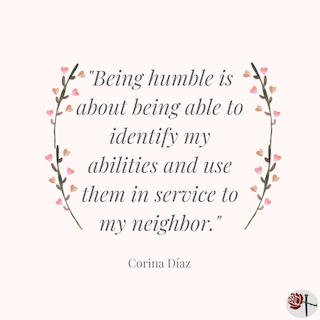Search Our Blog Posts
Blog Article Tags
We love building relationships. Subscribe to our blog to receive weekly encouragement in your email inbox.
- Details
 Written by Kristi Bond, volunteer with Iron Rose Sister Ministries in Arkansas
Written by Kristi Bond, volunteer with Iron Rose Sister Ministries in Arkansas
How often do we do something without thinking it through first? The answer should be…constantly. In fact, God created our brain to direct various functions of the body without our having to think about them or be completely conscious of them. The actions and reactions of the nervous system, digestion and respiration, for example, do not need our attention.
One of the greatest problems that human beings have is that we often speak or have conversations as if our capacity to speak were merely one of these unconscious acts. We speak without meaning to. We don’t guard our tongue when we should. Or we let moments pass when we should have spoken the truth because we are not aware.
When God created the universe, light, land, animals – and humans – He did it with words. “And God said, ‘Let there be light,’ and there was light…God called the light ‘day,’ and the darkness he called ‘night’…” (Gen. 1:3-5, NIV). In the first chapter of her book Speak Love: Making Your Words Matter, Annie F. Downs writes that God could have created the world by coughing or with His hands or His thoughts, but He didn’t do it that way. More than half of the verses in Genesis 1 record God’s words - communication was integral to creation.
More than this, our Creator formed us in His image (Gen. 1:26-27), giving us also the capacity to communicate – and not only to communicate, but to create with our words. What is it that, at least in part, creates a friendship? A marriage? An idea put into practice, or a new business? Words! Communication gives life to desires and thoughts. We have the capacity to create because God gave us the gift of the spoken word.
In the first communication from Adam of which the Bible informs us, he himself gives names to the animals, in the same way that God named the day and the night: “…whatever the man called each living creature, that was its name” (Gen. 2:19b, NIV). Names are important, as are the words that we use to describe something. Our words contribute to forming perceptions of everything around us and even of what we think of ourselves. Most importantly, our words can impact the self-perceptions of others. Communication redefined recognizes the power of creation that exists in our words.
We are reminded of this power in Proverbs: “The soothing tongue is a tree of life, but a perverse tongue crushes the spirit” (15:4, NIV), and also “The tongue has the power of life and death, and those who love it will eat its fruit” (18:21, NIV).
If the power of life and death resides in our words, shouldn’t we consider them carefully? How is it that we can treat so casually this incredible gift that God has given us? When we put down another woman, when we disparage our husband or criticize our children without thinking, we sow thorns instead of planting a tree of life. We must give thought to the fruits that our words produce in the lives of others.
How can you use your words today to create life?
- Details
 Written by Corina Diaz, volunteer with Iron Rose Sister Ministries in Argentina.
Written by Corina Diaz, volunteer with Iron Rose Sister Ministries in Argentina.
Humility is a quality or value that allows us to recognize our limits and accept them, in this sense, it invites us to reflect on our ego and our true nature.
At one point in my life, I considered that humility had to do with humiliation and modesty before others, so I had a tendency to lower my self-esteem in order to maintain a humble attitude. However, when I realized that it is about another concept, perhaps a little more positive, then my perspective changed. Being humble is about being able to identify my abilities and us them in service to my neighbor. So, why do we have to hide what we do well to appear humble? This is not necessary, and Jesus gives us a clear example in Luke 9:46-48:
“An argument started among the disciples as to which of them would be the greatest. Jesus, knowing their thoughts, took a little child and had him stand beside him. Then he said to them, “Whoever welcomes this little child in my name welcomes me; and whoever welcomes me welcomes the one who sent me. For it is the one who is least among you all who is the greatest.””
As I read this message from Jesus, I want to think about how a child thinks. Children do not lower their self-esteem to help others, on the contrary, they insist many times on helping. They also tend to accept the people around them without prejudice, and depending on their age, they do not know anything about ego, they simply give what they have to give and practice what they have learned. The disciples wondered who would be the greatest, perhaps thinking of wisdom or actions that they had accumulated over their time with Jesus, but what a surprise! Jesus Himself tells them that there is someone much greater than them, someone who does not know everything they know, but who is capable of approaching things with a mind free of prejudices and with the simple intention of learning: a child.
God does not have a scorecard for each one of us, but He is pleased with those who add their gifts in service to the Kingdom of God. Appreciating our own gifts and using them reveals an attitude of humility that only God can recognize in us. When we evaluate what we are capable of doing or not, we are preparing ourselves to serve in a better way, that is, to stop the pride of saving our qualities solely for our personal achievements. Rather, we allow Jesus to show us the best way to use them. Thus we become like a child who comes with a pure heart bringing what he has barely learned and wanting to allow it to be used without selfish intentions.